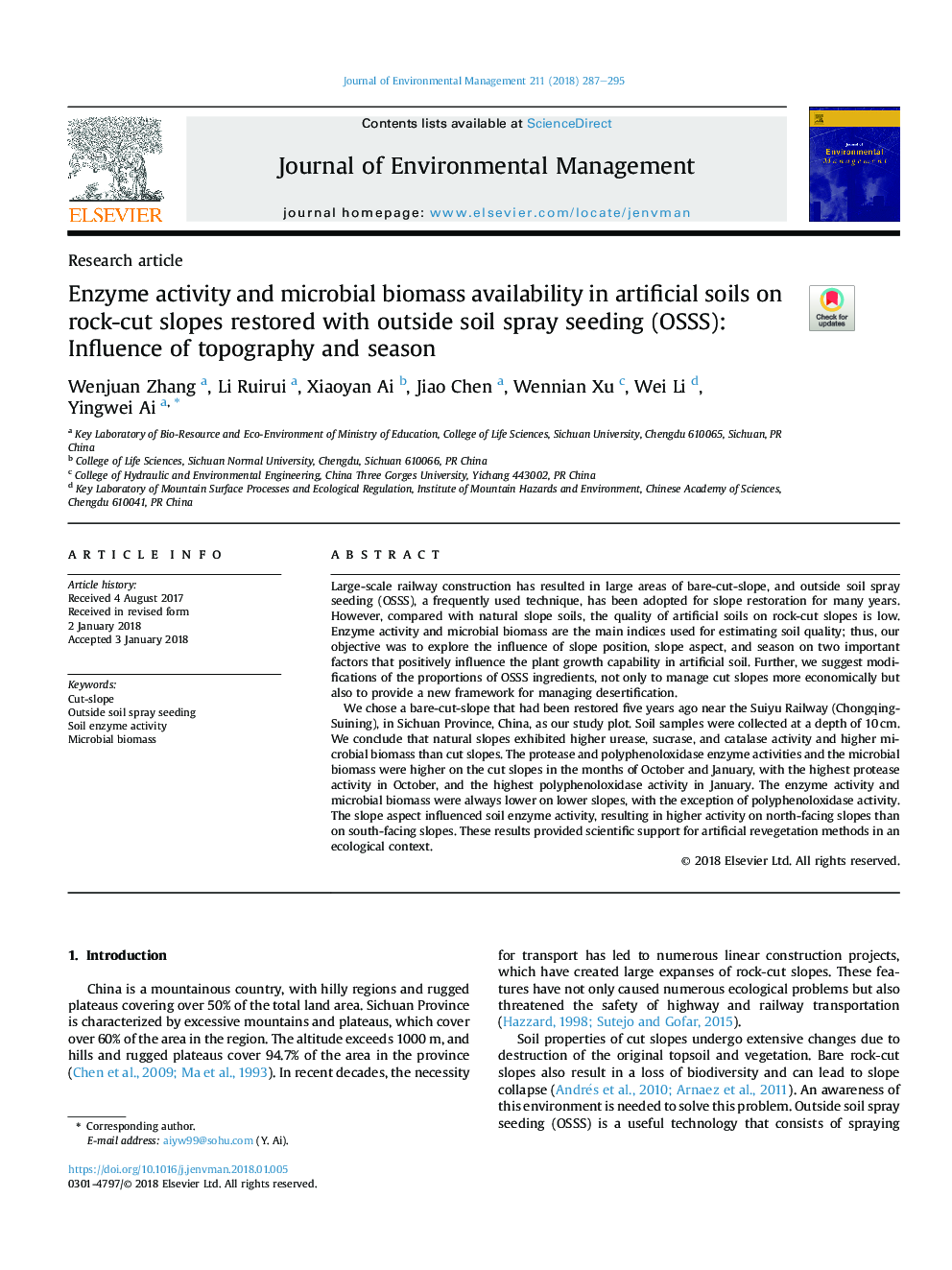| Article ID | Journal | Published Year | Pages | File Type |
|---|---|---|---|---|
| 7478235 | Journal of Environmental Management | 2018 | 9 Pages |
Abstract
We chose a bare-cut-slope that had been restored five years ago near the Suiyu Railway (Chongqing-Suining), in Sichuan Province, China, as our study plot. Soil samples were collected at a depth of 10â¯cm. We conclude that natural slopes exhibited higher urease, sucrase, and catalase activity and higher microbial biomass than cut slopes. The protease and polyphenoloxidase enzyme activities and the microbial biomass were higher on the cut slopes in the months of October and January, with the highest protease activity in October, and the highest polyphenoloxidase activity in January. The enzyme activity and microbial biomass were always lower on lower slopes, with the exception of polyphenoloxidase activity. The slope aspect influenced soil enzyme activity, resulting in higher activity on north-facing slopes than on south-facing slopes. These results provided scientific support for artificial revegetation methods in an ecological context.
Related Topics
Physical Sciences and Engineering
Energy
Renewable Energy, Sustainability and the Environment
Authors
Wenjuan Zhang, Li Ruirui, Xiaoyan Ai, Jiao Chen, Wennian Xu, Wei Li, Yingwei Ai,
